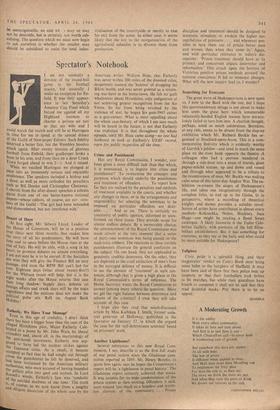Crime and Punishment
Has any Royal Commission, I wonder, ever been given a more difficult task than that which, it is announced, is to inquire into crime and punishment? `To re-examine the concepts and purposes which should underlie the punishment and treatment of offenders. . . . To report how far they are realised by the penalties and methods of treatment available to the courts, and whether any changes in these, or in the arrangements and responsibility for selecting the sentences to be imposed on particular offenders are desir- able. . . .' And so on. There is certainly no unanimity of public opinion, informed or unin- formed, on these issues. They provide scope for almost endless debate. By a memorable chance, the announcement of the Royal Commission was made almost at the very moment that a series of thirty-year sentences was being passed on the mail-train robbers. The reactions to these terrible punishments illustrate the general confusion on the subject. On one hand, they are applauded as genuinely credible deterrents. On the other, they are deplored as the cruel extinction of men's lives in the outraged defence of money. It is difficult to see the element of 'treatment' in such sen- tences, although that is given a high place in the Royal Commission's terms of reference. The Home Secretary wants the Royal Commission to answer (among many others) the question: Have we got the right balance between deterrence and reform of the criminal? I trust they will take account of this case.
I hope also they read that much-discussed article by Miss Kathleen J. Smith, former assis- tant governor of Holloway, published in the Spectator on January 17, in which she argued the case for the 'self-determinate sentence' based on prisoners' work.






































 Previous page
Previous page